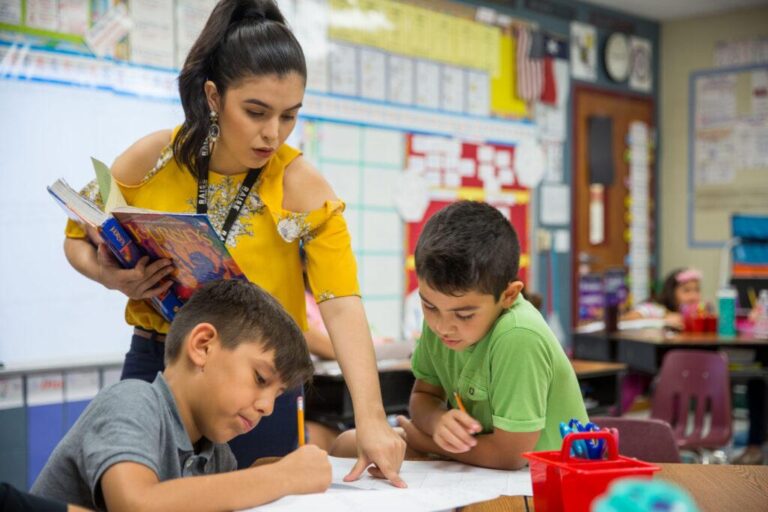Texas Teachers Face Backlash Over Remarks Concerning Charlie Kirk Threat
A number of educators in Texas have recently come under intense scrutiny after making statements that were interpreted as condoning violence against conservative commentator Charlie Kirk. These remarks, which surfaced during school-related activities and quickly spread across social media platforms, have ignited a fierce debate about the limits of free speech and the responsibilities of teachers in political discussions. The controversy has prompted school districts and state authorities to respond decisively, reflecting the heightened political polarization affecting classrooms across Texas.
In light of the uproar, several school districts have initiated formal inquiries and publicly denounced the inflammatory comments. Key developments from these responses include:
- Disciplinary actions: Some educators are currently suspended while investigations proceed.
- Policy reviews: Districts are revisiting their guidelines on political expression within schools.
- Community demands: Parents and advocacy groups are calling for transparency and assurances of safety.
| Group | Stance | Response |
|---|---|---|
| School Districts | Condemn inappropriate remarks | Initiated investigations |
| Parent Organizations | Demand accountability | Organized community protests |
| State Authorities | Advocate policy reassessment | Issued official statements |
Houston Schools and Community Groups Respond to the Controversy
Houston Independent School District (HISD) officials and local leaders have promptly condemned the contentious remarks, underscoring the district’s commitment to maintaining a respectful and secure educational environment. HISD’s Superintendent publicly addressed the issue, reaffirming the district’s high expectations for staff conduct and the importance of fostering a positive atmosphere for all students. Investigations are underway, with possible consequences ranging from suspension to termination depending on the outcomes. Additionally, HISD is emphasizing restorative justice approaches to rebuild trust between the schools and the affected communities.
Community members, including parents and advocacy groups, have mobilized to express their concerns and demand greater accountability. They have organized forums and digital campaigns to push for transparency and stricter oversight of educator behavior. The table below outlines the main stakeholders involved and their respective roles in addressing the situation:
| Stakeholder | Function | Actions Undertaken |
|---|---|---|
| School Board | Governance and Policy | Held emergency meetings; reviewed conduct policies |
| Parents & Guardians | Advocacy and Oversight | Led protests; demanded public accountability |
| Teacher Associations | Representation and Support | Called for fair investigations; emphasized due process |
| Community Advocates | Awareness and Reform | Launched awareness drives; petitioned for policy changes |
How Political Discourse Affects Students and Classroom Atmosphere
The infusion of politically sensitive topics into classroom discussions has raised alarms among educators, students, and families. When teachers voice polarizing opinions‚ÄĒsuch as those related to the recent Charlie Kirk controversy‚ÄĒit can fracture the classroom environment, leading to discomfort and alienation among students. This atmosphere of division undermines student engagement and emotional health, detracting from the primary educational mission. Ideally, classrooms should serve as neutral spaces dedicated to learning, but political disputes risk overshadowing this goal.
School leaders often find themselves navigating the delicate balance between protecting free speech and ensuring a respectful, inclusive environment. The ripple effects of such incidents extend beyond immediate conflicts, influencing the broader school culture in several ways:
- Growing ideological divides: Students may become polarized, hindering cooperative learning.
- Elevated stress and anxiety: Politically charged environments can negatively impact student mental health.
- Scrutiny of teacher impartiality: Educators face increased examination regarding their professional conduct.
- Reassessment of policies: Schools often update codes of conduct to better manage political expression.
| Area of Impact | Effect Observed | Recommended Action |
|---|---|---|
| Classroom Environment | Increased tension and reduced inclusivity | Implement clear rules for political discussions |
| Student Mental Health | Heightened anxiety and disengagement | Provide access to counseling and support services |
| Teacher Professionalism | Concerns over bias and conduct | Offer ongoing professional development |
Guidelines for Managing Political Dialogue in Educational Settings
In politically sensitive environments, educators must exercise prudence and uphold neutrality to ensure classroom discussions remain respectful and inclusive. Establishing explicit protocols for dialogue helps promote critical thinking without veering into partisan advocacy. Recommended strategies for teachers include:
- Establish clear expectations that encourage respectful exchanges and discourage hostility.
- Focus on verified facts rather than personal opinions or provocative remarks.
- Present diverse viewpoints to foster comprehensive understanding among students.
- Maintain professional boundaries by avoiding language that could be perceived as biased or offensive.
To effectively handle the complexities of political discussions in schools, continuous professional training and strong administrative support are essential. A collaborative approach involving educators, administrators, and parents is key to cultivating a safe and supportive learning environment. The table below summarizes best practices to consider:
| Best Practice | Description | Expected Benefit |
|---|---|---|
| Explicit Guidelines | Develop clear rules for political conversations | Minimized conflicts and misunderstandings |
| Inclusive Perspectives | Incorporate a range of political viewpoints | Improved critical thinking and empathy |
| Professionalism | Avoid personal biases in teaching | Enhanced teacher credibility and trust |
| Community Engagement | Involve parents and stakeholders in dialogue | Stronger support networks and transparency |
Conclusion: Pathways to Constructive Dialogue in Schools
The ongoing controversy surrounding Texas educators’ remarks about Charlie Kirk underscores the deep divisions permeating public discourse today. As Houston Public Media continues to track developments, it is clear that schools face significant challenges in balancing free expression with maintaining respectful, inclusive environments. This episode serves as a reminder of the importance of thoughtful policies, professional conduct, and community collaboration in navigating politically sensitive topics within educational settings.




